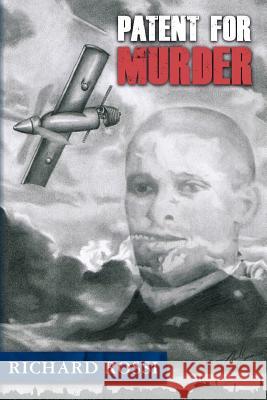Patent for Murder » książka
Patent for Murder
ISBN-13: 9781470082451 / Angielski / Miękka / 2012 / 216 str.
With the onset of World War I and its deadly aerial dogfights between warring pilots, the rush was on to develop flying bombs and robot planes that could patrol the skies unmanned. In the United States, three men, working independently and unbeknownst to each other, developed these early forerunners to the modern-day cruise missile. Two of these men were highly educated and successful engineers who received government funding for their ideas and became well known for their pioneering research. The third man, however, was an Italian immigrant of modest means, little formal education, and no funding. He nonetheless conceived the idea of an unmanned flying torpedo, constructed the weapon, successfully test flew the device, and then patented it in Washington D.C. That man was Giuseppe Rossi, and this is his story. Until now, his early invention has remained unknown in the annals of American military history. Now everyone can read the story of this unsung patriot through a fact-finding mission undertaken by his grandson, Richard B. Rossi. As a child, Rossi first came across his grandfather's invention while rummaging through his family's photo albums. He discovered a yellowed newspaper article with a picture of his then young grandfather and a headline that read, "Robot Planes? A Natick Man Flew Over One in R.I. 1918." Despite the enormous military significance of his grandfather's invention, the device never got to see the light of day. As Rossi became an adult, he made it his endeavor to find out why. In his research into both family and military history, Rossi discovered answers that shine a light on the very different country the United States was at the end of the First World War. His account is both an easy-to-read military history and an immigrant saga of acculturation. Told through different generations of the Rossi clan, this bravura act of fact-finding demonstrates how one notorious invention affects a family across time.
Zawartość książki może nie spełniać oczekiwań – reklamacje nie obejmują treści, która mogła nie być redakcyjnie ani merytorycznie opracowana.











